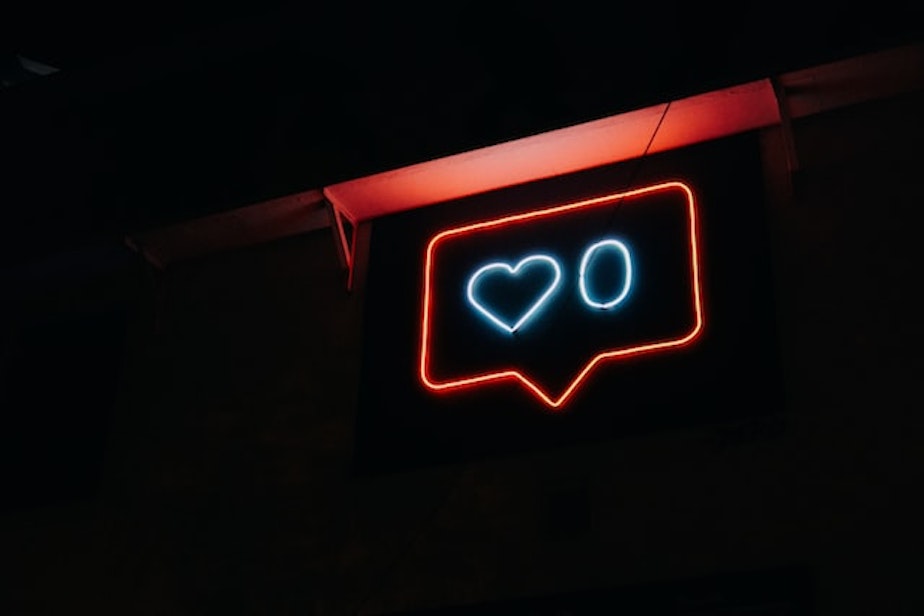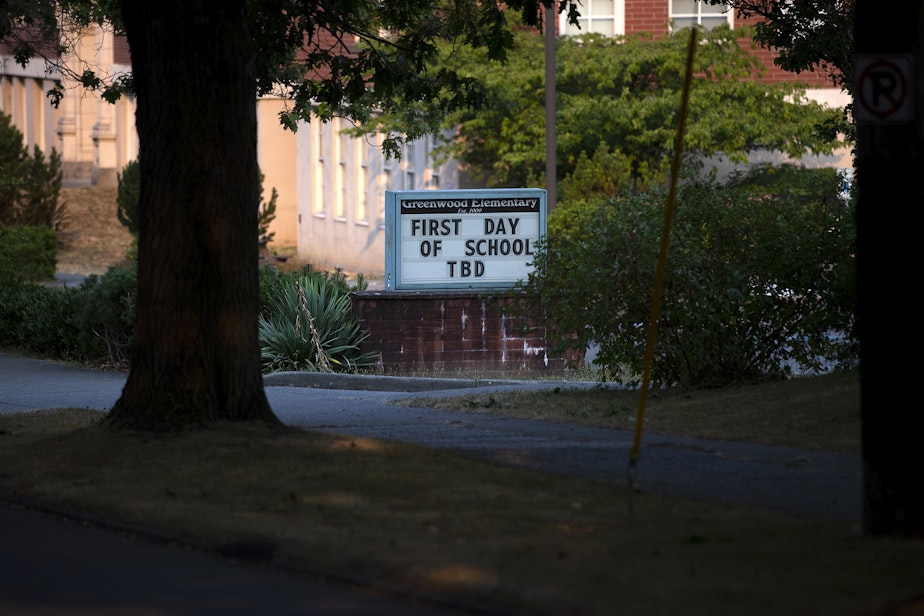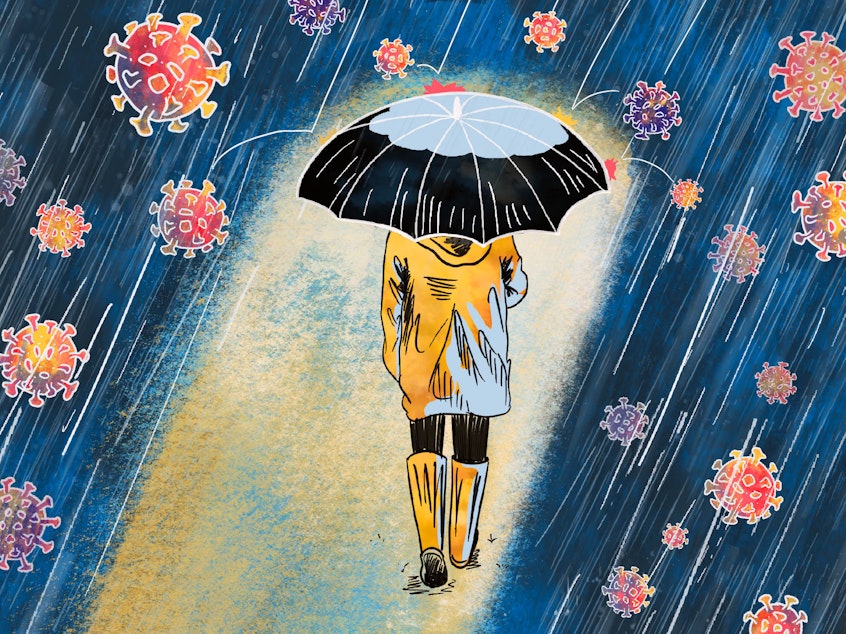How do you deal with online negativity?: Today So Far

- The internet is a wonderful tool for information, but it can carry just as much negative energy. How do we deal with the trolls and aggravating content?
- Also, I'm back from vacation.
This post originally appeared in KUOW's Today So Far newsletter for September 12, 2022.
Hello there! It's me, Dyer, your Today So Far guide to KUOW's newsroom. I'm back from a long vacation / two-year delayed honeymoon. I hope you're ready to jump right back into things, however, there is one reader who likely isn't so happy about my return. As I slide back into the TSF routine, I'd like to reset the tone here and chat about something I come across often as someone who works in the online space. Perhaps it's something you encounter too — negativity.
Just before I headed out the door two weeks ago, I got a letter from a reader who we will call "D." The letter stated, "Happy you will be gone for a while!" and threw a couple names my way. I have a general rule to not feed the trolls, however, I have to admit that I sort of agreed with this reader. You see, they objected to a previous "Did You Know" factoid in this newsletter about the "aroma of Tacoma." D insists that such an aroma no longer exists, and that I am a "typical Seattleite, scared of your better neighbors to the south." They called me "childish" and did not appreciate my "belittling of a truly magnificent city." I may have been joking around, but I clearly struck a nerve.
This put me in a weird spot — I agree that Tacoma is a truly magnificent city. That's sort of why I moved there. While I don't condone the unkind tone this person, or any online person, sent onto the World Wide Web, I can say that we both agree Tacoma is pretty great.
How do you deal with trolls, or just aggravating online content? The internet can transmit beneficial information as much as it can carry negative energy. We have a choice about what to do with it. You don't have to allow it to infect you (I know, that's easier said than done).
I've encountered an array of negative people in my work as a reporter. In fact, I used to keep a list of all the names I was called. Once, I was both a "communist" and a "fascist" in a single week. Still, as odd as this sounds, I find it's best to listen first; they may have a point in there somewhere, or maybe not. Keep in mind there is a person on the other side of that tweet or email, and they are likely more vulnerable and complex than the internet can convey. Endeavoring to understand doesn't mean you have to agree or engage with such negativity, and it doesn't mean that you can't set boundaries.
Sponsored
This is not an original approach. I'm reminded of conversations that journalist Monica Guzmán had with KUOW. While she covers more of a political angle, I feel it relates here. It's also something KUOW has dabbled with in the past via its Curiosity Club.
Frankly, this approach is a lot harder than simply calling someone a name and writing them off. In the long run, however, this is a choice that I feel is more constructive. As someone who consumes this online content, I hope this may help you in some way. Or maybe you disagree. That's OK. At least you listened.
With all that said, let's get to the real reason we're here with a few recent headlines from KUOW's newsroom.
- Shootings spiked during the pandemic. The spike now looks like a 'new normal'
- This Seattle arts space provides sustenance to the Black community
- In the post Russell Wilson era, what's in store for the Seahawks this year?
- 'Making good progress on negotiations,' Seattle schools says after three days of teacher strike
AS SEEN ON KUOW
Sponsored

A sign outside of Greenwood Elementary School reads, "first day of school TBD," as educators continue to strike on Friday, September 9, 2022, along Northwest 80th Street in Seattle. (Megan Farmer / KUOW)
DID YOU KNOW?
Moving on from the Tacoma aroma, which may or may not exist, let's talk about some other regional impressions.
I already covered the Olympia odor that hung in the air when the brewery was up and running years ago. We also have the Seattle Freeze — locals debate this, but I fall on the side that argues Seattle generally has a cold, unwelcoming demeanor. Yakima is the "Palm Springs of Washington." Pullman is known as the lentil capital of the world ... Pullman could probably use a brand update. And I've heard Vancouver, Wash. referred to as "Vantucky," which, come on, that one is just mean ... to Kentucky.
Sponsored
But hold on a minute — Yakima is the "Palm Springs of Washington?!" It's true, according to a roadside sign that claims as much. The sign was erected by Gary Lukehart in 1987. He once told the local NBC affiliate that he felt the comparison was valid because, simply put, both Yakima and Palm Springs get a lot of sunshine. That's true. I'd also throw out there that they both have plenty of golf courses around. And while they both get a lot of sun, Yakima has better summer temps averaging in the 80s; Palm Springs is generally above 100 degrees. Both cities also have decent access to local wineries. Perhaps it's not an apples-to-apples comparison, but maybe Lukehart is on to something.
ALSO ON OUR MINDS

So you haven't caught Covid yet. Does that mean you're a superdodger?
By this point in the pandemic, most Americans have had at least one bout of Covid. For children under age 18, more than 80% of them have been infected. But some people have been exposed multiple times and never had symptoms and never tested positive. So why haven't these people caught Covid?

